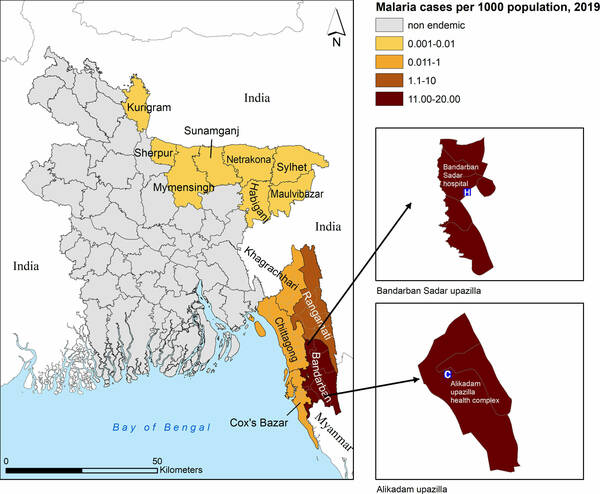
Malaria elimination is a Millennium Development Goal. Artemisinins, fast-acting antimalarial drugs, have played a key role in malaria elimination. Emergence of artemisinin resistance threatens the global elimination of malaria. Over the last decade, advanced clinical and laboratory methods have documented its spread throughout South East Asia and Myanmar. Neighboring Bangladesh lies in the historical path of dissemination of antimalarial resistance to the rest of the world, yet it has not been evaluated by combinations of leading methods, particularly in the highland Chittagong Hill Tracts adjacent to Myanmar which contain 90% of malaria in Bangladesh.
Collaborative research between Notre Dame, the International Center for Diarrheal Diseases, Bangladesh (icddr, b) and the National Malaria Elimination Program, Bangladesh, published in the journal mBio with co-first authors, Maisha Khair Nima (Graduate Student) and Dr. Angana Mukherjee (Research Assistant Professor) has demonstrated the first establishment of capacity to assess clinical artemisinin resistance directly in patients in the hilltops and laboratory adaptation of Bangladeshi parasite strains from a remote, sparsely populated malaria frontier that is responsive to climate. The study also provides a generalized model for comprehensive monitoring of drug resistance for countries where malaria is endemic.
The work was supported by the University of Notre Dame, Keough School for Global Affairs, Notre Dame Research and the Provost Office as well as National Institutes of Health USA (grant no. R01 HL 1330330 to Prof. Kasturi Haldar, Rev. Julius A. Nieuwland C.S.C. Professor of Biological Sciences and Director, Center for Rare and Neglected Diseases). Maisha Khair Nima was supported by a fellowship from the Eck Institute of Global Health.
-

Maisha Khair Nima
Graduate Student
-
